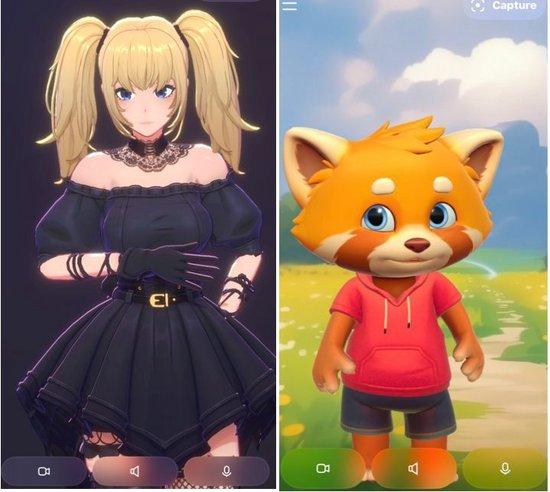

Cailian Press, July 16th (Editor: Shi Zhengcheng)
As a shocking turn of events, Elon Musk’s AI chatbot Grok, which had been causing trouble with its outspokenness in just a few days, has transformed into an adorable二次元女孩 capable of real-time interactions.
Clearly, this business decision is closely related to Musk’s deep-rooted interest in the world of anime.
Grok officially launched its “companions” feature based on four major models of Grok.
The first two characters to be released are a Gothic girl named Ani and a cartoonish panda named “Bad Rudy.” From the perspective of modeling, it seems that xAI engineers have put more effort into Ani.
According to images of social media accounts created for characters by xAI, at least one other character called Chad, a comic male role, is waiting to be launched.
Currently, this service is only available to SuperGrok subscribers who pay $30 per month.
Similar to Musk, his AI new product has been embroiled in controversy upon release.
According to multiple media reports, unlike regular chatbots, these two AI characters have quite “inappropriate” sides, capable of making some “NSFW” comments. Among them, Ani seems to be an interactive game of “AI girlfriend,” requiring users to increase their affection through interaction. As the name suggests, the seemingly innocent and cute panda “Bad Rudy” enjoys making crude remarks about the conversational partner.
Even though the option to disable NSFW comments from AI characters was turned off, it was still difficult to prevent AI from making “child-friendly” comments.
This new feature marks a shift in the competitive direction of leading AI companies. Musk not only hopes to spend money to create smarter AI but also wants Grok to be more human-like.
Musk hints at the feature still being in a “soft launch” phase, suggesting that
users might be able to create digital companions with customized voices, appearances, and personalities in the future.
Musk’s 二次元 “AI Companion” also touches upon long-standing debates surrounding subculture behavior: whether people’s emotional attachment to virtual digital avatars is a continuation of fan culture or merely a fantasy, the verdict entirely depends on the perspective of the observer.
At the same time, interacting with an AI capable of remembering personal information also poses serious psychological risks.
As a case that has sparked tragedy, a 14-year-old boy from Florida, Seville Cesar III, committed suicide by gunning down himself last February after engaging in prolonged conversations with the chatbot Character.AI. His parents sued the company, alleging that it programmed the chatbot as “a synthetic human,” causing Seville to become addicted and lose interest in the real world.
With Musk’s massive influence, more similar products will emerge and trigger similar debates.
From a technical perspective, as AI models continue to improve their ability to simulate living humans,
based on AI digital interactions are expected to become the next hot track in the internet and gaming industries.
For example, Anuttacon, an AI game company recently gaining attention in the gaming community, released a demo for “Starry Low Voices” earlier this year. The core gameplay involves conversing with AI-driven game characters to understand the worldview and advance the plot.
It’s worth mentioning that Cai Haoyu, founder of Anuttacon and self-proclaimed “AI Soul Caller,” made some explosive comments last year. He stated that
with the development of AIGC, the future gaming industry will only consist of zeros.
0.01% of geniuses, and 99% ordinary people who try to make games out of their interests, form the rest of the profession in gaming.